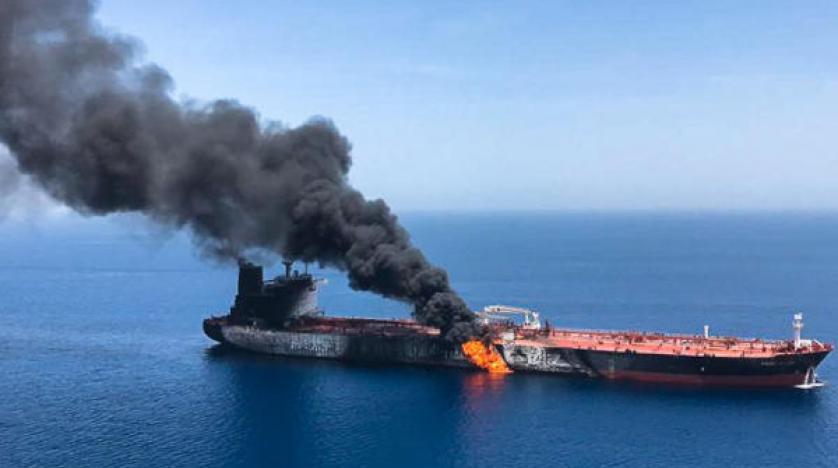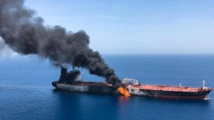"The presence of foreign troops in the Persian Gulf would not make the situation safer but would lead to further tensions," Rowhani said.
"Iran expects all EU states to not support these provocative proposals," his spokesman added, according to state news agency IRNA.
Britain has already moved ahead with its own initiative: London's Defence Ministry announced Sunday that a second British warship had arrived in the Gulf to beef up protection of oil tankers and other ships.
While Britain favours a diplomatic solution to guarantee freedom of navigation in the Strait of Hormuz, "the Royal Navy will continue to provide a safeguard for UK vessels until this is the reality," Defence Secretary Ben Wallace said.
The naval spat started in early July, when Iran's Grace-1 supertanker was stopped off Gibraltar for allegedly violating EU sanctions by carrying oil bound for Syria.
Since then, Iran has seized the British-flagged Stena Impero as well as the Panama-flagged ship MT Riah in the Strait of Hormuz.
The seizure of the Grace-1 amounted to a breach of Tehran's nuclear deal with major powers, Iranian Deputy Foreign Minister Abbas Araghchi said on Sunday, linking the two major issues that have triggered tensions over the past weeks.
Araghchi was in Vienna to meet senior diplomats from Britain, France, Germany, Russia and China to discuss Iran's own violations of the 2015 accord that is meant to prevent the Islamic Republic from building a nuclear arsenal. The US, which pulled out of the deal last year, was not in attendance.
"The seizure of our ship in Gibraltar was also a violation of the JCPOA because our partners in the deal should not cause any problems with regards to Iran's oil export," Araghchi said, using the acronym for the nuclear deal - the Joint Comprehensive Plan of Action.
The Vienna meeting was called to discuss Iran's uranium enrichment, which recently surpassed the allowed kilogramme and purity levels as Iran made good on its threat to gradually leave the nuclear deal.
"Both sides had complaints about each other," Araghchi acknowledged after the talks, in which he raised the tanker issue.
Tehran's steps to break nuclear deal limits are a reaction to Washington's exit from the pact last year, which was done against the objections of European powers.
The Trump administration has revived US sanctions and launched a "maximum pressure" campaign to force Iran to agree a much broader deal.
According to Araghchi, all the countries around the table in Vienna are still committed to salvaging the nuclear pact, and he acknowledged European efforts to foster trade with his country despite US sanctions that were revived as part of Washington's exit.
The deputy foreign minister said participants agreed that their foreign ministers should meet soon, but he cautioned that more preparatory work was needed to make this a "successful meeting with a practical outcome."
------------------------------------------------------------------
Iran warns EU against Gulf mission, links naval and nuclear disputes
VIENNA/TEHRAN, Albert Otti and Farshid Motahari (dpa)- Europe should think twice about sending a maritime security mission to the Strait of Hormuz, Iranian President Hassan Rowhani said Sunday as one of his senior diplomats linked the current naval spat with the 2015 nuclear accord.
|
At a glance

|
The world in pictures
|









 Home
Home Politics
Politics










